
United Nations Security Council resolution 940, adopted on 31 July 1994, after recalling resolutions 841 (1993), 861 (1993), 862 (1993), 867 (1993), 873 (1993), 875 (1993), 905 (1994), 917 (1994) and 933 (1994), the Council permitted a United States-led force to restore President Jean-Bertrand Aristide and authorities of the Government of Haiti, and extended the mandate of the United Nations Mission in Haiti (UNMIH) for an additional six months.
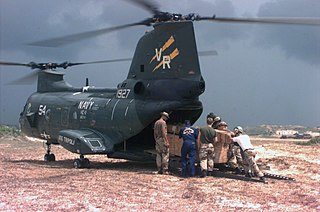
The Unified Task Force (UNITAF) was a United States-led, United Nations-sanctioned multinational force which operated in Somalia from 5 December 1992 until 4 May 1993. A United States initiative, UNITAF was charged with carrying out United Nations Security Council Resolution 794 to create a protected environment for conducting humanitarian operations in the southern half of the country.
The United Nations Peacekeeping efforts began in 1948. Its first activity was in the Middle East to observe and maintain the ceasefire during the 1948 Arab–Israeli War. Since then, United Nations peacekeepers have taken part in a total of 72 missions around the globe, 12 of which continue today. The peacekeeping force as a whole received the Nobel Peace Prize in 1988.

United Nations Security Council Resolution 1542, adopted unanimously on 30 April 2004, after receiving a report by the Secretary-General Kofi Annan, the council deplored all violations of human rights in Haiti and urged the Government of Haiti to promote and protect human rights with a State based on rule of law and independent judiciary.

United Nations Security Council resolution 862, adopted unanimously on 31 August 1993, after recalling resolutions 841 (1993), 861 (1993) and an agreement between the President of Haiti and the Commander-in-Chief of the Armed Forces of Haiti, the Council reaffirmed the international community's commitment to a solution in Haiti and discussed the establishment of a new police force in Haiti under a proposed United Nations Mission in Haiti (UNMIH).
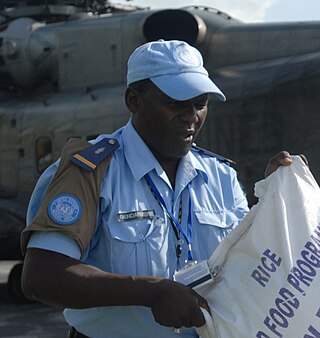
United Nations Security Council resolution 867, adopted unanimously on 23 September 1993, after recalling resolutions 841 (1993), 861 (1993) and 862 (1993) on the situation in Haiti, the council reiterated its position of protecting international peace and stability and established the United Nations Mission in Haiti (UNMIH).

United Nations Security Council resolution 933, adopted unanimously on 30 June 1994, after recalling resolutions 841 (1993), 861 (1993), 862 (1993), 867 (1993), 873 (1993), 875 (1993), 905 (1994) and 917 (1994), the Council noted the deteriorating situation in Haiti and extended the mandate of the United Nations Mission in Haiti (UNMIH) until 31 July 1994.

United Nations Security Council resolution 948, adopted on 15 October 1994, after recalling resolutions 841 (1993), 861 (1993), 862 (1993), 867 (1993), 873 (1993), 875 (1993), 905 (1994), 917 (1994), 933 (1994), 940 (1994) and 944 (1994), the Council welcomed the return of the legitimate President of Haiti Jean-Bertrand Aristide and lifted sanctions imposed on the country.

United Nations Security Council resolution 964, adopted on 29 November 1994, after recalling resolutions 841 (1993), 861 (1993), 862 (1993), 867 (1993), 873 (1993), 875 (1993), 905 (1994), 917 (1994), 933 (1994), 940 (1994), 944 (1994) and 948 (1994), the council noted the progress in Haiti and strengthened the advance team of the United Nations Mission in Haiti (UNMIH).
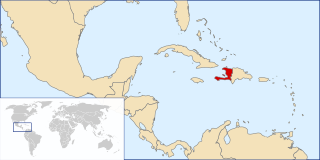
United Nations Security Council resolution 975, adopted on 30 January 1995, after recalling resolutions 841 (1993), 861 (1993), 862 (1993), 867 (1993), 873 (1993), 875 (1993), 905 (1994), 917 (1994), 933 (1994), 940 (1994), 944 (1994), 948 (1994) and 964 (1994), the Council discussed the transfer of responsibility from the Multinational Force (MNF) to the United Nations Mission in Haiti (UNMIH) and extended the mandate of UNMIH for a further six months until 31 July 1995.
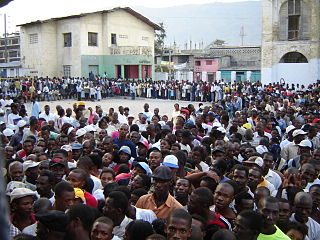
United Nations Security Council resolution 1007, adopted unanimously on 31 July 1995, after recalling resolutions 841 (1993), 861 (1993), 862 (1993), 867 (1993), 873 (1993), 875 (1993), 905 (1994), 917 (1994), 933 (1994), 940 (1994), 944 (1994), 948 (1994), 964 (1994) and 975 (1995), the Council discussed the election process and extended the mandate of the United Nations Mission in Haiti (UNMIH) for a further seven months.

United Nations Security Council resolution 1029, adopted unanimously on 12 December 1995, after recalling previous resolutions on Rwanda, including Resolution 872 (1993), Resolution 912 (1994), Resolution 918 (1994), Resolution 925 (1994), Resolution 955 (1994), Resolution 965 (1994), Resolution 978 (1995) and Resolution 997 (1995), the Council extended the mandate of the United Nations Assistance Mission for Rwanda (UNAMIR) for a final time, ending 8 March 1996, and adjusted its mandate.

United Nations Security Council resolution 1037, adopted unanimously on 15 January 1996, after recalling previous resolutions on Croatia including resolutions 1023 (1995) and 1025 (1995), the council established the United Nations Transitional Authority for Eastern Slavonia, Baranja and Western Syrmia (UNTAES) for an initial period of 12 months.
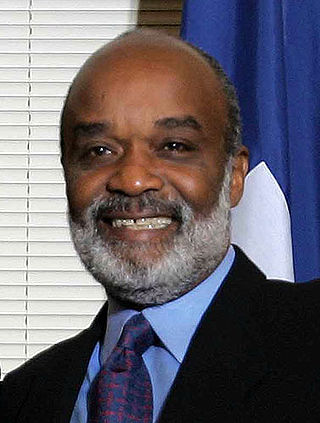
United Nations Security Council resolution 1048, adopted unanimously on 29 February 1996, after recalling resolutions 841 (1993), 861 (1993), 862 (1993), 867 (1993), 873 (1993), 875 (1993), 905 (1994), 917 (1994), 933 (1994), 940 (1994), 944 (1994), 948 (1994), 964 (1994), 975 (1995) and 1007 (1995) on Haiti, the Council extended the mandate of the United Nations Mission in Haiti (UNMIH) for four months until 30 June 1996, and reduced its size.

United Nations Security Council resolution 1056, adopted unanimously on 29 May 1996, after reaffirming all previous resolutions on the Western Sahara, the Council discussed the Settlement Plan for Western Sahara, including the suspension of the voter identification process, and extended the mandate of the United Nations Mission for the Referendum in Western Sahara (MINURSO) until 30 November 1996.

United Nations Security Council resolution 1086, adopted unanimously on 29 November 1996, after recalling all relevant Security Council and General Assembly resolutions on Haiti, the Council decided to extend the United Nations Support Mission in Haiti (UNSMIH) for a final time, until 31 May 1997, unless it could make further progress, in which case, it would be extended until 31 July 1997.
United Nations Security Council resolution 1123, adopted unanimously on 30 July 1997, after recalling all relevant Security Council and General Assembly resolutions on Haiti and noting the termination of the United Nations Support Mission in Haiti in accordance with Resolution 1086 (1996), the council established the United Nations Transition Mission in Haiti (UNTMIH) to assist with the national police force.

United Nations Security Council resolution 1141, adopted unanimously on 28 November 1997, after recalling all relevant Security Council and General Assembly resolutions on Haiti and noting the termination of the United Nations Transition Mission in Haiti in accordance with Resolution 1123 (1997), the council established the United Nations Civilian Police Mission in Haiti (MIPONUH) to continue assisting Haiti's police for a year.
United Nations Security Council Resolution 1892 was unanimously adopted on 13 October 2009.

The United Nations Transition Mission in Haiti (UNTMIH) was a four-month mission which took place between 30 July 1997 and 30 November 1997. UNTMIH was the third United Nations peacekeeping operation in Haiti, and was established by United Nations Security Council Resolution 1123, adopted on 30 July 1997.

















